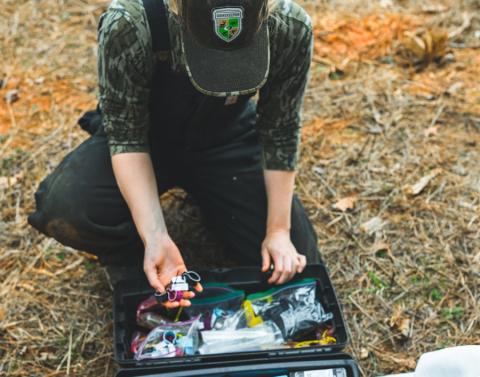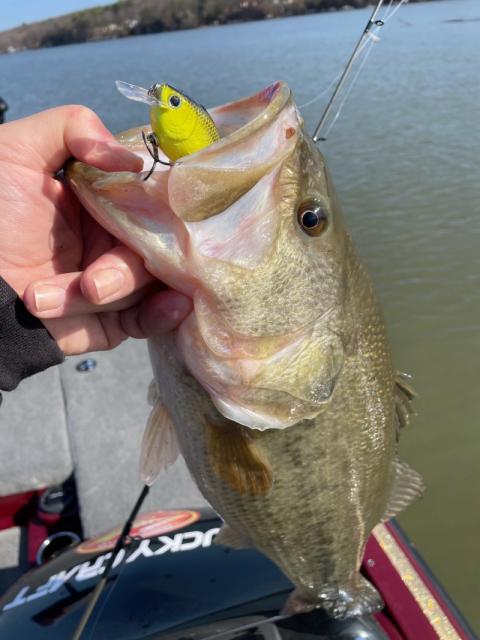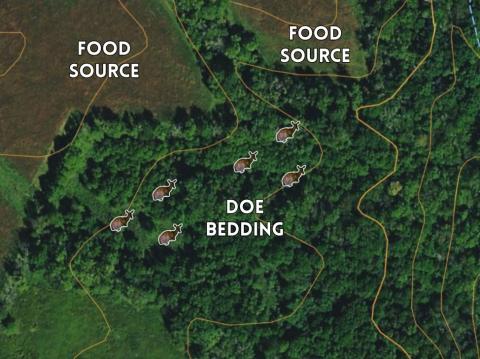At some point in many Americans’ lives, they dream of owning a place where they can escape the hustle and bustle of the daily grind and simplify things. Some may have a dream of a coastal getaway or a retreat in the mountains. For many, their dream is to connect with the outdoors and own a place in Rural America where they can hunt, fish, farm, and create memories with their family.

At Mossy Oak Properties, our obsession with the outdoors is a primary reason we exist. We know the fulfillment that comes with owning land and take our role of advising people that are buying or selling rural property very seriously.
If the land-buying process is a journey, developing a roadmap and understanding how to buy land. While our advice is always to connect with a Mossy Oak Properties land specialist to enable them to guide a buyer through this process confidently, this article serves to equip a buyer with the basic knowledge needed to discern whether buying land is a realistic proposition for a buyer and their family.
Step 1: Developing Priorities when Buying Land
To determine a destination, buyers need to know where they want to end up. Every person has a different vision of what they are looking for in a property, and every property has unique features that differentiate it from others. As such, a great process for starting is determining the following:
- general location a buyer wants a property to be
- general purpose a buyer wishes the land to fulfill
- the attributes a buyer wishes a property to have
It’s often said the three most important words in real estate are location, location, location, and this holds in rural real estate. Rural land buyers often have a certain county, or even a smaller section of a county, in mind when buying land.
They may have a school district in which they wish to be located or a “flyway” that creates quality duck hunting opportunities. While it is important to know where a buyer wants a property to be located as the search begins, it is also important for them to be willing to be a little flexible in the property’s location. In the case of hunting properties, many counties might have an aura of being “big buck counties,” with the cost of property reflecting that when other lesser-known counties nearby are just as capable of producing quality deer at a more reasonable entry price for land buyers.
The second aspect to consider is the desired usage of a property. For instance, if a buyer needs the property to “cash flow” and produce an annual return through farming income, then narrowing down to any future list of available market listings to include only properties capable of supporting crop production will speed up a search. If a buyer is looking for a recreational retreat to hunt whitetails on, attributes such as mature timber, established food plots, water features, and more may be important.
When buyers decide on general property usage, they must list desired attributes. Things like the aforementioned assets may be considered, along with if the tract needs to come with an established dwelling, certain proximity from a town, and preferred topography. Leave out price range and desired acreage in this process-more on this later.
Once a buyer has developed a wish list, a good next step would be to rank those attributes in order from one to ten (or however many a buyer has listed). This process will prioritize desired attributes and features and make it easier when as they proceed through the search process. Think of this process as differentiating needs versus wants; we all might “want” to be a certain distance from town, but to check the priority boxes and get a little better deer hunting property, we might “need” to venture out a little further.
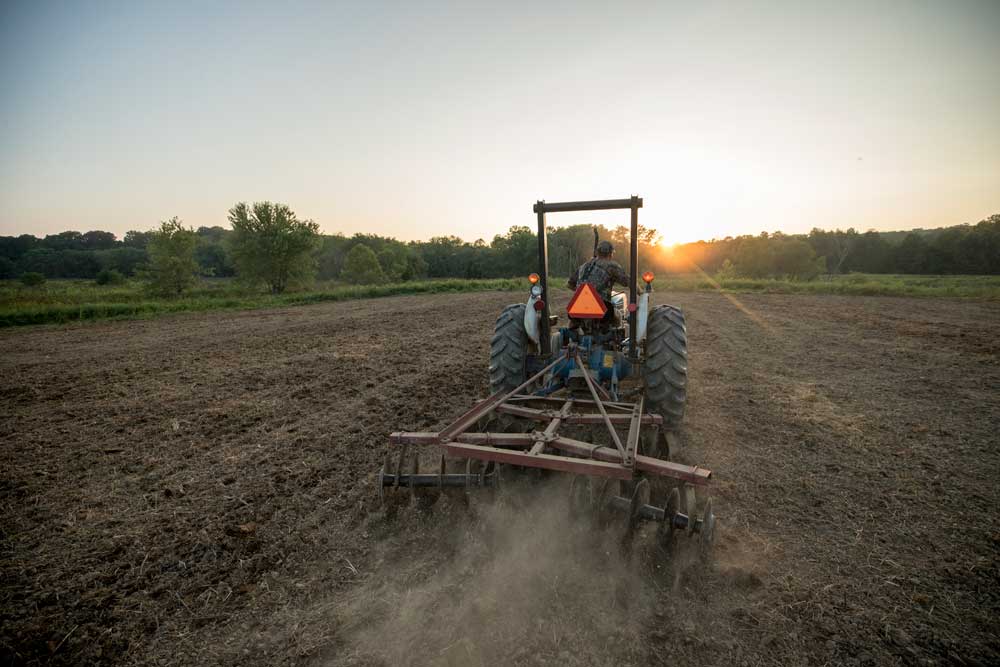
Step 2: Getting Prequalified to Buy Land
Unless a buyer is a cash buyer, they will likely be financing their rural land purchase. There are several options available, ranging from conventional bank loans to even owner financing, but the most prominent and practical loan vehicle is financing through a bank specializing in land financing. As such, the next step in the process would be to get prequalified to know what their budget ceiling is.
According to Jamey Nicholas of Southern Ag Credit, a lending institution that focuses on financing land purchases, the prequalification process is simple.
“Prequalification is a huge part of the land buying process because it allows buyers to figure out what they can realistically afford,” stated Nicholas. “The first step is to meet with a local lender, whether that be Southern Ag Credit or any farm credit institution that specializes in financing land. They will first ask for a financial statement, a buyer’s last two or three years of tax returns, and verification of their liquid accounts, to understand what a buyer has saved up and what they can put down. The standard land loan is twenty percent down, so they’ll need to know how much income a buyer has so that the payments will not be too much to bear.”
Nicholas said once that information has been compiled, the lender can then recommend a realistic maximum figure to consider in the land-buying process. “Having the confidence of knowing their financial boundaries is important and helps alleviate concerns for a land specialist and a potential buyer.”
Many land specialists will even request a potential buyer first to get prequalified before continuing through the process. After all, if a buyer thinks their price range is something that the prequalification process reveals is unrealistic, the buyer is often back to the drawing board.
As such, the prequalification process is also a great opportunity to learn more about the options available to a land buyer.
“In most cases, folks don’t even realize the options they have when looking to finance land, especially when it’s not their primary residence,” said Jamie Spencer of Mossy Oak Properties Tennessee Land and Farm in Franklin, Tennessee. “The farm and land lending institutions have more favorable financing options than the typical commercial banks because that’s all they do. Local Farm Credit Services locations are very customer-friendly and offer rates that sometimes surprise clients simply because people don’t know those options exist.”
Robert Eason, Co-Owner and Principal Broker of Mossy Oak Properties Delta Land Management in North Little Rock, Arkansas, said: “A knowledgeable and prepared buyer is a land specialist’s best friend. Having a solid priority list is important, but paramount is a buyer’s understanding of their purchasing power and the options available to them. Some folks come to us with cash, then shy away from looking at a larger property that they could afford if they were to get a loan at today’s cheap interest rates,” said Eason.
Eason continued by saying that Farm Credit Services have 20- 30-year loans that are customized to rural property types. “Farm Credit Services creates products that allow a buyer to finance improvements a buyer plans to make, such as irrigation on a row crop farm, or ponds on a recreational property, along with the initial purchase price,” Eason stated.
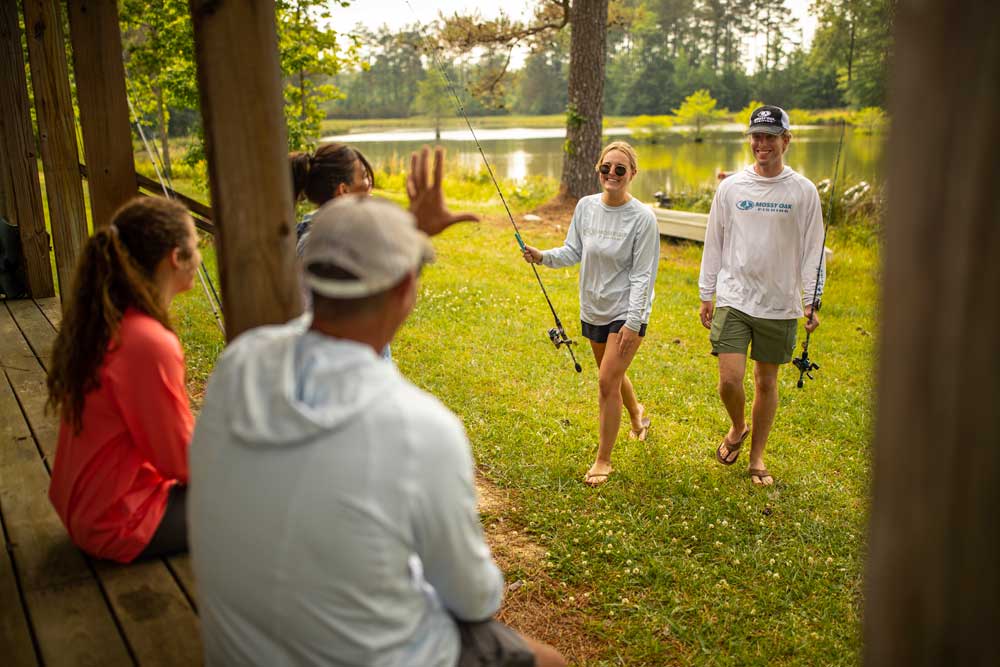
Step 3: Connecting with a Mossy Oak Properties Land Specialist
After a buyer has developed a priorities list and understands their budget, it is time to visit a local Mossy Oak Properties land specialist to discuss their priorities list and budget. A good land specialist can explain if that list is realistic or if a buyer needs to reconsider some factors.
“When we meet a first-time land buyer, we try to sit down with them and go over their goals,” said Terrell Brazell, Owner, and Broker of Mossy Oak Properties Coastal Land and Real Estate in St. Mary’s, Georgia. “We need to set basic priorities, prioritize what they want to do with the property, get them to help us understand exactly what they’re looking for, and try to fit that into a budget.”
They will also be able to scan their inventory and the inventory of others in the market to find a range of properties that may fit a priority list. Additionally, they may know of properties not actively on the market that might be a possibility.
“A good land specialist will put the buyer’s interest first and will not show them properties that are out of their reach financially,” Brazell said. “We can help show them how to accomplish their goals, whether that is a smaller piece of property that checks all their boxes or a property that is more acreage but may garner a lower price for whatever reason. There are often properties that need a little vision and sweat equity but can provide a better long-term value than a property that is what we call turn-key.”
Land specialists will also be able to provide insight that other agents might not be able to provide, such as understanding soil types and reading topo maps, in addition to having tools such as aerial mapping software that can make the process easier. They also understand the underlying emotion that comes with a land purchase because many of them own rural land also. Most importantly, they have the experience of specializing in a certain type of property that many residential or commercial-focused real estate agents lack an understanding of.
Step 4: Property Discovery
Now that the buyer is prequalified and has visited with a land specialist on their priorities, the land specialist will go to work finding properties that might best fit their client’s needs. According to Spencer, if a buyer is looking at available online independently of their land specialist, communication between the two is important.
“There is absolutely nothing wrong with a buyer doing their homework when searching for land,” said Spencer. “In fact, I recommend it. A buyer can load any extra ‘bullets’ into their real estate search ‘holster’ the better; however, they must always communicate with their land specialist any questions that may arise from their research, and not make any assumptions without their consultation.”
As the buyer and land specialist communicate on properties of interest, a good land specialist can cross reference the buyer’s financial capabilities and priorities with those properties to suggest a smaller list and clearly explain the pros and cons of each property being considered. This can eliminate time and energy to ensure the process does not wear on everyone involved.
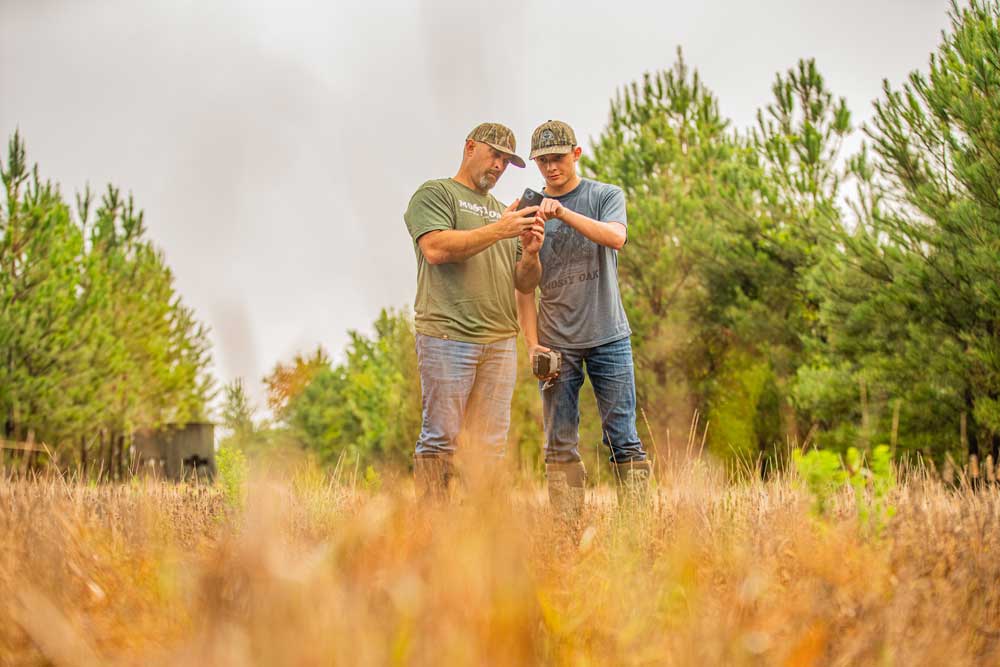
Step 5: Boots on the Ground
Once a buyer and their land specialist have identified a core group of properties that fit their financial capabilities and needs, there is no substitute for viewing the property in person. However, the buyer must keep an open mind and an eye on their priority list when looking at each property.
Far too often, a buyer falls in love with a piece of property based on the excitement of being an active land buyer and ends up making a decision based on emotion versus logic. Overcoming this is where the land specialist earns their keep, and the buyer can help themselves out tremendously.
Buying a property that does not fit their desired location, needs, or budget may mean they sell it shortly – often at a loss. A reputable land specialist will put the buyers’ interest first and tell a buyer when to pass on a property that is not a fit for them.
A buyer and their land specialist need to examine as much of each property as possible to ensure there are no issues that may not have been revealed in the discovery process. Things such as defects to structures, condition of roads, age of timber, or hazards such as abandoned wells, may require a closer look to uncover, as well as the land specialist prying the listing agent or current owner on certain concerns.
Many states are caveat emptor states, meaning much of the burden of discovering issues falls on the buyer and his/ her representing agent. In other words, in those states, a buyer must ask plenty of questions during the discovery and tour processes.
As a buyer tours properties with their land specialist, they need to take along their priorities list and make notes on attributes of the property they like, as well as things that may take future improvements after purchase. Having a printed aerial map or quality mapping app can help a buyer understand where they are on the property and take notes on how the property “flows.”
At the end of each tour, the buyer would be wise to take some time to discuss everything with their land specialist before proceeding on to other properties or back to the office. This can help the buyer formulate questions for the land specialist to ask the seller’s agent or the landowner to clear up any questions or alleviate concerns.

Step 6: The Valuation and Offer Process
When a buyer has decided upon a property they wish to make an offer on, the savvy of the land specialist will pay off by suggesting an offer price that is within the market yet gives room within the budget for counteroffers. The initial offer price is critical because should it be too low, the seller may be offended, and should it be too high, there may be little room for negotiation, as well as concerns of the property not appraising for a value equal to or greater than that price, should the seller accept. If the property does not appraise at a value equal to or greater, the financing may fall through, taking the deal with it. This delicate dance is another prime reason for enlisting a land specialist throughout the buying process. Many agents may be able to navigate the process up to this point, but if they lack knowledge of land values and cannot put forward an accurate estimate of the property’s value, the buyer’s dreams may be dashed.
“A buyer’s agent should have a good knowledge of comparable sales and should be able to provide a buyer with enough information to make an offer that is in line with the current market,” said Eason. “A buyer never wants to make a lowball offer or pay full price if at all possible.”
Once a buyer and their land specialist decide on a price to offer, they’ll submit it in writing to the seller’s agent or the landowner themselves if no listing agent exists. In addition to the offer price, a buyer can offer to pay for things such as the surveys or closing costs, as well as the ability to close quickly, to make the overall offer more attractive.
Even with a strong offer, a buyer can usually expect a counteroffer from the seller. While there is a certain level of gamesmanship involved in this process, a buyer should still be ready to take action, whether it be walking away from the deal or coming to an agreement.
Spencer summed up this moment in the buying process by saying, “If the owner makes a counteroffer, then the art of making a deal has begun, and a buyer is inching closer to becoming a landowner.”
Likewise, Eason stated that a counteroffer signifies that the owner takes a buyer’s initial offer seriously.
“Most willing and able sellers expect to receive another offer from a buyer if a buyer does not accept the counter,” said Eason. “A counteroffer is much better than just being rejected. This is where a good land specialist can pay off; someone that is willing and able to help with the negotiation process and who doesn’t get personal when making deals.”
The counter-offer is critical to keeping the process moving along, so negotiations must be carried out with little delay. Nick Marinelli, Owner, and Broker at Mossy Oak Properties Land & Luxury in Mooresville, North Carolina, remarked that a buyer has three options upon receiving a counteroffer:
- accept
- decline and walk away from the deal
- decline and counter
“Sometimes buyers and sellers counter several times before they can reach an agreement,” said Marinelli.
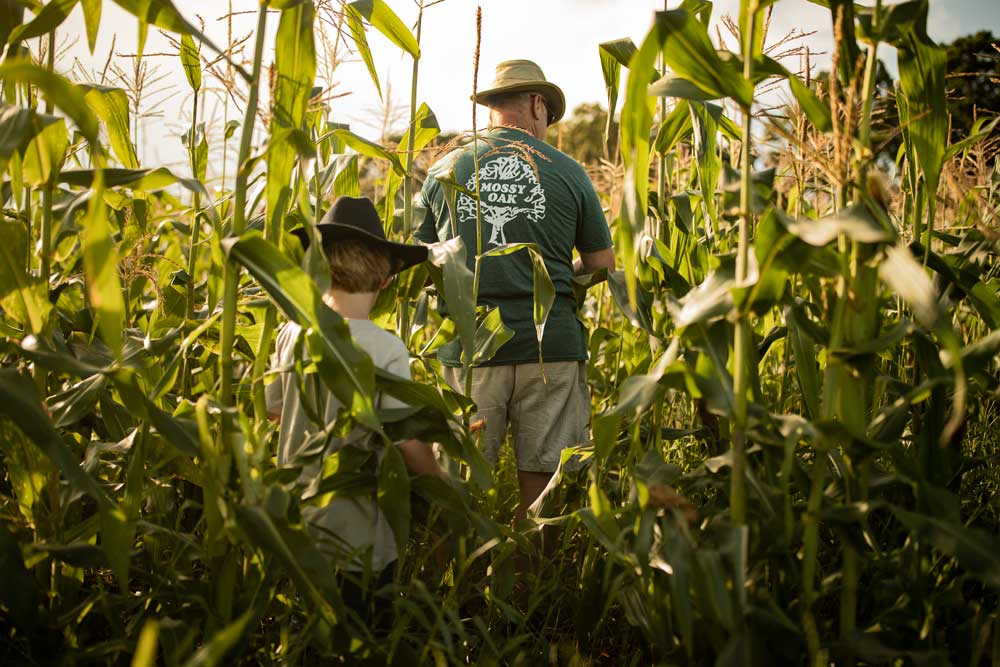
Step 7: Contract Acceptance and Property Close
Once the meeting of the minds has occurred and an offer is accepted, a buyer’s earnest money is deposited into the selling agents’ escrow account, and the contract and close period begin. Securing financing should be a formality due to the prequalification process, and an agreement upon closing costs, title work, and any other details should be handled promptly versus at the closing table. Having to backtrack and renegotiate these various fees at the last minute can put a stall in closing talks and potentially kill the deal before a buyer can sign.
“All the negotiating should be completed before the offer is executed,” said Eason. “Who pays closing costs and when the closing will take place are all terms that should be addressed in a buyers’ written offer.”
Marinelli echoed Eason’s sentiment by saying: “I have found there are three things that slow transactions down: financing, closing companies, and brokers. My best advice is to hire a good closing company. I have found that some attorneys are better suited for closing land than others. Your land specialist and the land bank should be able to suggest a reputable closing company to ensure a smooth close.” Eason noted there are a few things that need to be wrapped up before the closing process is completed, including proration of taxes or crop rent (for ag land), official ownership transfers via the local Farm Service Agency, and addressing any leases about farming or hunting on a buyers’ new land.
Spencer agreed that the time to address any questions or unknowns is before close. “There really shouldn’t be any surprises once the deed has been transferred to a buyer’s name,” said Spencer. “The last thing I want my clients to endure after closing is a surprise they were not expecting, such as an easement issue or a hazard on the property. If this happens, it can turn a positive land transaction into a negative one.”

At closing, which typically takes place at a title company or attorney’s office, the deed (title) paperwork will have been prepared by the closing attorney. Loan documentation will also be present if the buyer is financing the purchase. The lender will distribute the funds for purchase to the closing attorneys’ escrow account, which will, in turn, pay off any loan the previous landowner had in place, distribute commission payments to the agents, and distribute any remaining funds to the seller. Depending on the agreement between the buyer and seller, payments for the closing attorney, deed registration fee, and title insurance will also be paid directly between either the buyer, seller, or both to those responsible parties, separate from the purchase price.
Again, this process is why having a good land specialist to navigate the legalities is important. In most cases, the cost of this representation is covered by the seller as a part of their commission, which would then be split based on an agreement between the buyer agent and seller agent. So a buyer would be foolish not to have professional representation during this process.
In closing, while the land-buying process may seem daunting, it is made much easier with the right strategy and assistance. The result of a place to call your own to enjoy with your family is worth enduring the process. To experience how to buy land, contact your local Mossy Oak Properties office today!




















